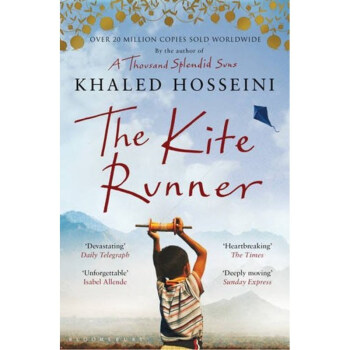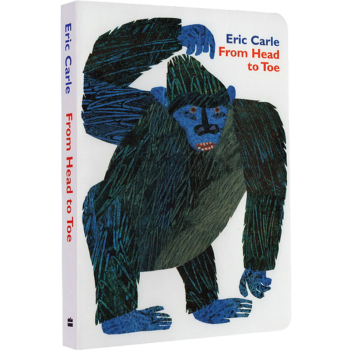![The Glass Castle 玻璃城堡 英文原版 [平装]](https://pic.windowsfront.com/19029106/59f68d88Nec23d71b.jpg)

具体描述
内容简介
The Glass Castle is a remarkable memoir of resilience and redemption, and a revelatory look into a family at once deeply dysfunctional and uniquely vibrant. When sober, Jeannette's brilliant and charismatic father captured his children's imagination, teaching them physics, geology, and how to embrace life fearlessly. But when he drank, he was dishonest and destructive. Her mother was a free spirit who abhorred the idea of domesticity and didn't want the responsibility of raising a family.The Walls children learned to take care of themselves. They fed, clothed, and protected one another, and eventually found their way to New York. Their parents followed them, choosing to be homeless even as their children prospered.
The Glass Castle is truely astonishing - a memoir permeated by the intense love of a peculiar but loyal family. Jeannette Walls has a story to tell, and tells it brilliantly, without an ounce of self-pity.
《玻璃城堡》是一部比虚构小说更离奇曲折的真实回忆录。这是一个真实的故事,却常常离奇得超乎想象,轻松幽默的语言背后有着许多深沉感人的亮点。一个拥有价值百万美金的土地却坚持流浪街头的画家母亲,一个魅力超凡才华横溢却酗酒嗜赌的天才父亲,四个聪明坚强的孩子,构成了沃尔斯一家。
父母的空想主义和特立独行的生活态度既给全家带来了灾祸,也带来了救赎。他们在美国西南部的矿镇度过了纯真快乐、充满冒险而又满怀希望的流浪生活,孩子们学会了如何勇敢地拥抱生活。
但是当经济越发拮据、流浪的热情逐渐减退时,孩子们只能互相照顾,并忍受着父母对他们不经意的伤害。他们努力地存钱,相继离家去了纽约,开始了各自想要的生活。
作者简介
Jeannette Walls was born in Phoenix, Arizona, and grew up in the southwest and Welch, West Virginia. She graduated from Barnard College and was a journalist in New York City for twenty years. Her memoir, The Glass Castle, a triumphant account of overcoming a difficult childhood with her dysfunctional but vibrant family, has been a New York Times bestseller for over three years. A publishing sensation around the world, The Glass Castle has sold more than 2.5 million copies in the U.S. and has been translated into twenty-two languages. Walls is the recipient of numerous honors, including the Christopher Award for helping to "affirm the highest values of the human spirit,” as well as the American Library Association’s Alex Award, and the Books for Better Living Award. The Glass Castle was chosen as Elle magazine's book of the year. Walls lives in rural Virginia with her husband, the writer John Taylor.珍妮特·沃尔斯(Jeannette Walls),美国著名记者。撰有《闲聊:流言世界的内幕》、《闲聊:流言如何变成新闻,新闻怎样成为另一场秀》等书。2005年出版回忆录《玻璃城堡》,首次公开自己鲜为人知、与众不同的家庭背景和成长经历,凭借此书蜚声文坛。
现与丈夫约翰·泰勒(John Taylor)长住纽约城和长岛。
精彩书评
"Jeannette Walls has carved a story with precision and grace out of one of the most chaotic, heartbreaking childhoods ever to be set down on the page. This deeply affecting memoir is a triumph in every possible way, and it does what all good books should: it affirms our faith in the human spirit."-- Dani Shapiro, author of Family History
"The Glass Castle is the saga of the restless, indomitable Walls family, led by a grand eccentric and his tempestuous artist wife. Jeannette Walls has survived poverty, fires, and near starvation to triumph. She has written this amazing tale with honesty and love."
-- Patricia Bosworth, author of Anything Your Little Heart Desires and Diane Arbus: A Biography
"Just read the first pages of The Glass Castle by Jeannette Walls, and I defy you not to go on. It's funny and sad and quirky and loving. I was incredibly touched by it."
-- Dominick Dunne, author of The Way We Lived Then: Recollections of a Well-Known Name Dropper
精彩书摘
Chapter 1: A Woman on the StreetI was sitting in a taxi, wondering if I had overdressed for the evening, when I looked out the window and saw Mom rooting through a Dumpster. It was just after dark. A blustery March wind whipped the steam coming out of the manholes, and people hurried along the sidewalks with their collars turned up. I was stuck in traffic two blocks from the party where I was heading.
Mom stood fifteen feet away. She had tied rags around her shoulders to keep out the spring chill and was picking through the trash while her dog, a black-and-white terrier mix, played at her feet. Mom's gestures were all familiar -- the way she tilted her head and thrust out her lower lip when studying items of potential value that she'd hoisted out of the Dumpster, the way her eyes widened with childish glee when she found something she liked. Her long hair was streaked with gray, tangled and matted, and her eyes had sunk deep into their sockets, but still she reminded me of the mom she'd been when I was a kid, swan-diving off cliffs and painting in the desert and reading Shakespeare aloud. Her cheekbones were still high and strong, but the skin was parched and ruddy from all those winters and summers exposed to the elements. To the people walking by, she probably looked like any of the thousands of homeless people in New York City.
It had been months since I laid eyes on Mom, and when she looked up, I was overcome with panic that she'd see me and call out my name, and that someone on the way to the same party would spot us together and Mom would introduce herself and my secret would be out.
I slid down in the seat and asked the driver to turn around and take me home to Park Avenue.
The taxi pulled up in front of my building, the doorman held the door for me, and the elevator man took me up to my floor. My husband was working late, as he did most nights, and the apartment was silent except for the click of my heels on the polished wood floor. I was still rattled from seeing Mom, the unexpectedness of coming across her, the sight of her rooting happily through the Dumpster. I put some Vivaldi on, hoping the music would settle me down.
I looked around the room. There were the turn-of-the-century bronze-and-silver vases and the old books with worn leather spines that I'd collected at flea markets. There were the Georgian maps I'd had framed, the Persian rugs, and the overstuffed leather armchair I liked to sink into at the end of the day. I'd tried to make a home for myself here, tried to turn the apartment into the sort of place where the person I wanted to be would live. But I could never enjoy the room without worrying about Mom and Dad huddled on a sidewalk grate somewhere. I fretted about them, but I was embarrassed by them, too, and ashamed of myself for wearing pearls and living on Park Avenue while my parents were busy keeping warm and finding something to eat.
What could I do? I'd tried to help them countless times, but Dad would insist they didn't need anything, and Mom would ask for something silly, like a perfume atomizer or a membership in a health club. They said that they were living the way they wanted to.
After ducking down in the taxi so Mom wouldn't see me, I hated myself -- hated my antiques, my clothes, and my apartment. I had to do something, so I called a friend of Mom's and left a message. It was our system of staying in touch. It always took Mom a few days to get back to me, but when I heard from her, she sounded, as always, cheerful and casual, as though we'd had lunch the day before. I told her I wanted to see her and suggested she drop by the apartment, but she wanted to go to a restaurant. She loved eating out, so we agreed to meet for lunch at her favorite Chinese restaurant.
Mom was sitting at a booth, studying the menu, when I arrived. She'd made an effort to fix herself up. She wore a bulky gray sweater with only a few light stains, and black leather men's shoes. She'd washed her face, but her neck and temples were still dark with grime.
She waved enthusiastically when she saw me. "It's my baby girl!" she called out. I kissed her cheek. Mom had dumped all the plastic packets of soy sauce and duck sauce and hot-and-spicy mustard from the table into her purse. Now she emptied a wooden bowl of dried noodles into it as well. "A little snack for later on," she explained.
We ordered. Mom chose the Seafood Delight. "You know how I love my seafood," she said.
She started talking about Picasso. She'd seen a retrospective of his work and decided he was hugely overrated. All the cubist stuff was gimmicky, as far as she was concerned. He hadn't really done anything worthwhile after his Rose Period.
"I'm worried about you," I said. "Tell me what I can do to help."
Her smile faded. "What makes you think I need your help?"
"I'm not rich," I said. "But I have some money. Tell me what it is you need."
She thought for a moment. "I could use an electrolysis treatment."
"Be serious."
"I am serious. If a woman looks good, she feels good."
"Come on, Mom." I felt my shoulders tightening up, the way they invariably did during these conversations. "I'm talking about something that could help you change your life, make it better."
"You want to help me change my life?" Mom asked. "I'm fine. You're the one who needs help. Your values are all confused."
"Mom, I saw you picking through trash in the East Village a few days ago."
"Well, people in this country are too wasteful. It's my way of recycling." She took a bite of her Seafood Delight. "Why didn't you say hello?"
"I was too ashamed, Mom. I hid."
Mom pointed her chopsticks at me. "You see?" she said. "Right there. That's exactly what I'm saying. You're way too easily embarrassed. Your father and I are who we are. Accept it."
"And what am I supposed to tell people about my parents?"
"Just tell the truth," Mom said. "That's simple enough."
前言/序言
用户评价
这是一本让我爱不释手,也让我久久不能平静的书。我一直以为童年应该是充满阳光、欢声笑语的,是父母无微不至的关怀和呵护下的成长。然而, Jeannette Walls 的《The Glass Castle》彻底颠覆了我的认知。她以一种近乎残酷的坦诚,描绘了她那非同寻常、充满颠沛流离的童年。书中,她的父母,一对才华横溢却又极度不稳定、不负责任的艺术家,带着孩子们在贫穷和不稳定中挣扎。他们时而在荒凉的沙漠中露营,时而在破旧不堪的矿区小镇勉强度日。阅读的过程中,我无数次地感到心疼,心疼那些年幼的孩子们,他们被迫过早地承担起生活的重担,甚至要忍受饥饿和危险。然而,与心疼并存的,还有一种难以置信的震撼。即便生活如此艰难, Jeannette 的父母却从未停止过向孩子们灌输“梦想”和“自由”的概念。他们会在星空下给孩子们讲宇宙的奥秘,会鼓励他们思考,去探索未知的世界。这种矛盾,这种混乱,却又包含着一种奇特的、扭曲的爱,让我深深地着迷。我无法用简单的“好”或“坏”来评价这本书,它更像是一面棱镜,折射出人性的复杂,生活的艰辛,以及在绝境中依然闪烁的人类精神的光芒。
评分我向来对回忆录类的书籍抱有极高的兴趣,尤其是那些讲述非凡人生经历的作品。而《The Glass Castle》无疑是我近期读到的最令人难忘的一本。它打破了我对“正常”家庭的固有认知,向我展示了一个完全不同的成长范式。 Jeannette Walls 的父母,是一对极具魅力的“麻烦制造者”。他们追求自由,蔑视世俗的规则,带着孩子们在世界各地漂泊。然而,这种自由的代价是巨大的。孩子们常常需要面对饥饿、寒冷,甚至是危险。我尤其记得书中关于他们在沙漠中露营,为了寻找食物而不得不冒险的片段,读来让人心惊胆战。但同时,我也看到了他们父母身上那种不被世俗所累的“精神”。他们鼓励孩子独立思考,对世界充满好奇,并尽力为他们创造一些“奇迹”,尽管这些“奇迹”常常是建立在不切实际的幻想之上。这种教育方式,无疑是极具争议性的,但它也塑造了 Jeannette 独特的个性和坚韧的品格。这本书让我思考,究竟什么是真正的“家庭”?是稳定的居所,丰厚的物质,还是那些在动荡中依然存在的,看似混乱却又无比深刻的连接?它教会了我,即使生活给了你一副烂牌,你也可以用自己的方式,去打出精彩的对局。
评分这本书是我最近一段时间以来,读到的最能触动我内心深处的一部作品。它以一种极其真实、毫不掩饰的方式,讲述了一个关于破碎的家庭,以及一个女孩如何在逆境中成长的故事。Jeannette Walls 的童年,注定与众不同。她的父母,是一对“流浪者”,他们对自由的执着,让他们无法安顿下来,也无法给孩子们提供稳定的家。我读到那些孩子们因为缺乏食物而挨饿,因为没有温暖的住所而瑟瑟发抖的片段,内心充满了同情。同时,我也被他们父母那种特立独行的生活方式所震撼。他们仿佛活在自己的世界里,对世俗的压力毫不在意,却又会将那些关于宇宙、关于科学的知识,用一种奇特的方式传达给孩子们。这种教育,充满了矛盾,也充满了风险,但它却在孩子们的心中播下了好奇的种子。这本书让我思考,我们所认为的“正常”和“幸福”究竟是什么?是否只有在物质的富足和稳定的环境中,才能获得真正的成长?Jeannette 的经历告诉我,即使生活给了你一副令人绝望的牌,你也可以凭借内心的力量,去创造属于自己的光明。它不是一个关于抱怨的故事,而是一个关于坚韧、关于希望,以及关于如何带着伤痕,依然勇敢前行的故事。
评分阅读《The Glass Castle》的过程,就像是坐上一辆过山车,情绪跌宕起伏,时而紧张,时而心酸,时而又忍不住思考。 Jeannette Walls 用她那毫不避讳的笔触,勾勒出她充满挑战的童年。她的父母,是一对充满矛盾的个体,他们才华横溢,却又被酒精和混乱所困扰,无法为孩子们提供一个稳定和安全的环境。我读到那些孩子们在饥寒交迫中挣扎的场景,读到他们不得不独自面对困难的时刻,内心充满了怜悯。特别是当作者描述她如何学习独立,如何在学校受到排挤,如何努力想要融入“正常”社会的时候,那种心酸和倔强,让我感同身受。然而,这本书并没有止步于对苦难的描绘。它更像是在展现,即使在最艰难的环境下,人性的光辉依然能够闪耀。她的父母,尽管有诸多缺点,但他们对孩子们的“思想”教育却从未停止。他们鼓励孩子们去梦想,去探索,去成为他们自己。这种“自由”的理念,虽然方式极端,却也在孩子们心中埋下了独立的种子。这本书让我认识到,成长本身就是一场斗争,而爱,有时候并非如我们想象的那般温顺和简单,它也可以是粗糙的,是充满遗憾的,却又是如此的真实和深刻。
评分这本书就像一位老友,在深夜里,围炉而坐,娓娓道来一个关于生存、关于家庭、关于爱与被爱的故事。它不是那种让你读完后立刻感到温暖和治愈的童话,反而充满了现实的骨感和一丝丝的辛酸。作者 Jeannette Walls 的叙事风格非常独特,她没有刻意去美化或丑化她的父母,而是以一种近乎客观的视角,将那些充满戏剧性的过往呈现在读者面前。我被书中那些生动的场景深深吸引:夜晚在尘土飞扬的房子里,与老鼠为伴,等待父母醉醺醺地回来;为了填饱肚子,不得不去垃圾箱里翻找食物;在学校里,因为贫穷和穿着,遭受同学的嘲笑和欺凌。这些细节,如此真实,如此令人心碎,让我仿佛置身于她的成长环境之中,感受着她曾经的无助和渴望。然而,正是这种真实,让这个故事充满了力量。它让我反思,在最艰难的环境下,我们是否还能保持内心的纯粹和对未来的希望?这本书让我看到了,即使原生家庭带来了伤痕,也无法完全阻挡一个人追求更好生活的脚步。它不是关于逃离,而是关于如何带着伤痛,勇敢地向前走,去寻找属于自己的那片天空。
评分书比较轻,便于携带
评分印刷质量一般,感觉和通常所见的书有差距
评分孩子喜欢看的书
评分小巧,纸质微黄护眼,随身携带方便查看,要是价格优惠就完美了。
评分随着时代的冰裂,蔷薇街上,生命纵然微如凡尘,却也奔向传奇。
评分看完电影来的,原版竟然看着也无压力
评分高尔基先生说过:“书籍是人类进步的阶梯。”书还能带给你许多重要的好处。
评分印刷质量一般,感觉和通常所见的书有差距
评分然而,在几近魔幻现实的六十年代,在激流暗自汹涌的八十年代,冥冥中自有股力量操纵着街上的居民,令他们走向命运之不可知。于是少年恣肆成长,成人东奔西突——
相关图书
本站所有内容均为互联网搜索引擎提供的公开搜索信息,本站不存储任何数据与内容,任何内容与数据均与本站无关,如有需要请联系相关搜索引擎包括但不限于百度,google,bing,sogou 等
© 2026 book.coffeedeals.club All Rights Reserved. 静流书站 版权所有

![Little Pookie 英文原版 [平装] [0岁及以上] pdf epub mobi 电子书 下载](https://pic.windowsfront.com/19033503/51bd6f60-3f69-47a2-8d63-0b989d34bfbb.jpg)
![The Tree Doctor (Dr. Seuss/Cat in the Hat) (Step into Reading) [平装] [4岁及以上] pdf epub mobi 电子书 下载](https://pic.windowsfront.com/19309860/57c92fb6N1e97d0d9.jpg)
![Getting Things Done: The Art of Stress-Free Productivity 英文原版 [平装] [18岁及以上] pdf epub mobi 电子书 下载](https://pic.windowsfront.com/19538697/58bf77eeN9d31cc0c.jpg)



![The Grandma Mix-Up (I Can Read, Level 2)奶奶和外婆 [平装] [4-8岁] pdf epub mobi 电子书 下载](https://pic.windowsfront.com/19004963/550be65aN23b7fdd4.jpg)
![Macbeth(Signet Classic Shakespeare Series) 麦克白(莎士比亚经典作品) 英文原版 [平装] pdf epub mobi 电子书 下载](https://pic.windowsfront.com/19008593/rBEhVFJ6HXUIAAAAAAC-QKHHgH8AAFFygKOwgIAAL5Y460.jpg)
![Biscuit Visits the Doctor小饼干去看医生 [平装] [4-8岁] pdf epub mobi 电子书 下载](https://pic.windowsfront.com/19009126/550be69bN7f5b8dd3.jpg)
![Helen Keller: Courage in the Dark海伦凯勒:黑暗中的勇气 [平装] [7岁及以上] pdf epub mobi 电子书 下载](https://pic.windowsfront.com/19016259/2acd8af0-c3ac-429c-a883-9a0c86d00a7e.jpg)
![Hop on Pop(Book & CD) 英文原版 [平装] [3岁及以上] pdf epub mobi 电子书 下载](https://pic.windowsfront.com/19016330/6d354d16-98f4-44c4-8f83-db2961bb4433.jpg)
![On Liberty and Utilitarianism 论自由与功利主义 [平装] pdf epub mobi 电子书 下载](https://pic.windowsfront.com/19017151/0c37ba79-b802-43a7-9a84-35b09ed07de4.jpg)
![Nate the Great and the Hungry Book Club [平装] [6岁及以上] pdf epub mobi 电子书 下载](https://pic.windowsfront.com/19032620/9b15a818-74b7-4207-b606-0c4f45cdfc37.jpg)
![Nate the Great and the Stolen Base [平装] [6岁及以上] pdf epub mobi 电子书 下载](https://pic.windowsfront.com/19035835/55c1842bN54aa0e1c.jpg)
![The Mitten A Ukrainian Folktale 英文原版 [精装] [1岁及以上] pdf epub mobi 电子书 下载](https://pic.windowsfront.com/19141031/0222792d-8ee4-48b0-9afe-b370fa1f941f.jpg)
![Llama Llama Jingle Bells [0-3岁] pdf epub mobi 电子书 下载](https://pic.windowsfront.com/19537411/55239172N85c238f3.jpg)
![Everything I Never Told You A Novel 英文原版 [平装] [18--UP] pdf epub mobi 电子书 下载](https://pic.windowsfront.com/19551583/56a1cacbN9af9d497.jpg)
![Doodle Dudes My Superhero [平装] pdf epub mobi 电子书 下载](https://pic.windowsfront.com/19567035/5af94f9fN52ee2382.jpg)
![The Heroes of Olympus, Book Five The Blood of Ol 英文原版 [平装] [10--14] pdf epub mobi 电子书 下载](https://pic.windowsfront.com/19636305/57b1274dNe1c0345d.jpg)
